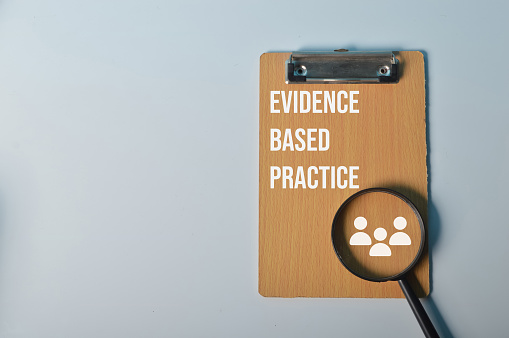-
Best Australian Pokies Best Payout
Play Free 777 Pokies Online
What Are the Best Australian Pokies to Win Big On
What Are the Best Online Pokies with Low Minimum Deposits for Real Money in Australia
New Australian Pokies Accepting PayID
What Are the Best Strategies to Win in Online Pokies with Bonus Rounds in Australia
Tips for Winning Top Australian Pokies
What Online Casinos Offer Free Play Pokies with Welcome Bonuses in Australia
Australian Slot Games
Payout Ratio Pokies with Welcome Bonus

Magnifying glass and wooden clipboard with text EVIDENCE BASED PRACTICE
How Evaluation Research Can Inform Evidence-Based Practice
Evaluation research can inform evidence-based practice. What is evidence-based practice? It’s a growing field that focuses on improving clinical treatment based on research findings and knowledge. But how are we applying this knowledge in our everyday lives? When you look at the grand scheme of things, it’s quite easy to fall into the trap of treating every patient as unique and different from all other patients. It’s easy for us to treat individual cases as unique as if each case was unique and different from all other cases.
However, this does not mean that we should not apply the research methodologies because of this — in fact, principles of evidence-based practice (also known as RCTs) ensure that we apply these methods both successfully and unsuccessfully.
What is evaluation research?

Evidence-based practice
Evaluation research is a term that is also used to refer to program evaluation in terms of research purpose from the latter which is method specific. Evaluation research, therefore, is the systematic approach or assessment of the worth or merit of time, capital, and resources such as effort utilized to achieve an intended goal. Researchers have over the years closely used this term in line with the more conventional social research. However, evaluation research uses a number of the same methods that are utilized in traditional social research but requires more team skills, management skills, smartness, interpersonal efforts, and other skills that are not required in the social research context.
What is evidence-based practice?
Evidence-Based Practice or EBP is a term that most of us encounter in the health care setting but few of us truly know the meaning. So, what is the definition of the term EBP?
EBP is the application or translation of research findings in our day-to-day patient care practices in addition to clinical decision-making. The process entails combining the best available data with professional knowledge and skill while taking into account patients’ specific requirements and personal preferences. When utilized regularly, good patient results are more likely(Tallie Casucci, 2021).
Using EBP entails discarding obsolete care delivery approaches in favor of effective, scientifically established methods to fulfill the requirements of individual patients. EBP practitioners must be proficient in determining the usefulness of research for their unique patient population.
How can evaluation research inform evidence-based practice?
Evaluation research can inform evidence-based practice by:
Identifying gaps in the evidence. The purpose of evaluation research is to identify what is already known about a topic so that experts can use that knowledge to develop new strategies and interventions. To do this, researchers must first identify what they don’t know. This process can help practitioners identify the gaps in their knowledge and guide them toward developing new programs or policies.
Providing systematic reviews. A systematic review is a critical step in identifying gaps in the evidence and developing new strategies. It involves identifying all relevant studies on a particular topic, then summarizing the findings, and making recommendations based on those findings.
Providing descriptive studies. Descriptive studies provide information about how well-designed programs or policies are working in real-life settings, as opposed to laboratory settings where many variables are controlled for and may not apply to real people living with a particular condition or problem. Descriptive studies can be used as input into policy development so that policymakers can make informed decisions about what works best for people with disabilities.
Why is it important to reach practitioners with evaluation research findings?
Evaluation research findings are a critical component of evidence-based practice. While practitioners may be aware of the need for evidence, they often feel it is not their responsibility to produce it. However, evaluation research findings can inform practice and lead to changes in practice.
Evaluation research findings are useful for practitioners because they help them understand why some treatments work for some patients and not for others. In addition, researchers have developed tools that enable practitioners to conduct their evaluations to improve the quality of care they provide.
Evaluation research is a valuable tool that can inform evidence-based practice. The following are some reasons why:
Evaluation of research findings can help practitioners make better decisions and take action based on sound evidence. This can be accomplished through:
1. Considering potential benefits and harms of interventions when designing a trial, as well as understanding the feasibility of implementing these interventions in practice.
2. Identifying strengths and weaknesses of existing programs or policies that are being considered for adoption or change.
3. Providing information to support decision-making regarding priorities and resources within health services or policy development initiatives.
Conclusion
In short, evaluation research and evidence-based practice go hand in hand. Evaluation can help to identify certain areas for improvement and help to set future priorities. And when practitioners apply what they know from research, their work can help bring about real change on the ground.
Evidence-based practice is about moving away from simply believing in a certain process, or even an entire approach, and towards basing decision-making on empirical evidence of its effectiveness. Not only does this aim to improve outcomes for clients, but it also provides a means for replication by other practitioners seeking to improve these outcomes—or by funders who want to see their money well spent. In order to achieve this goal, both researchers and practitioners will need to work together.
Reference
Tallie Casucci, M.-J. (G. A. (2021). What is evidence-based practice? What is Evidence-Based Practice? Retrieved December 6, 2022, from https://accelerate.uofuhealth.utah.edu/improvement/what-is-evidence-based-practice
Related Article: 5 major obstacles LGBTQ people in obtaining adequate healthcare
Attachments
